I like to save money wherever I can, so when it came to setting up a veggie garden I was happy to buy the seeds and raise them myself rather than buying seedlings. Raising your own seedlings is much more cost effective solution – so long as the seeds germinate and thrive. We can also enjoy the satisfying achievement of growing them ourselves, and we get to participate in the miracle of life sprouting from lifeless looking seeds.
My experience up until recently had not been terribly successful. Many seeds would not sprout, especially the smaller seeds, despite keeping them moist and warm. A friend then told my wife this may be due to what I was sowing them into.
False economy
In my efforts to further save money, I was sowing seeds into pots filled with soil from my property. This could be a mixture of mulched eucalyptus leaves, sandy topsoil and compost. The compost was generally most successful, however I found this made my peas fail to sprout because they went mouldy:
[photo]
The right mix/True economy
Raising your own seedlings requires further investment in a good seed raising mix. It is false economy to pay for good seeds and sow them into the wrong soil.
I found different options including pine bark mulch, however I came across a post describing how to make your own from coir and vermiculite. While I haven’t tried this combination yet, I found a “Seed Raising Potting Mix Coir Block” at Bunnings which makes up 15L for $4.75. It’s such an easy recipe – you just add water and stir:
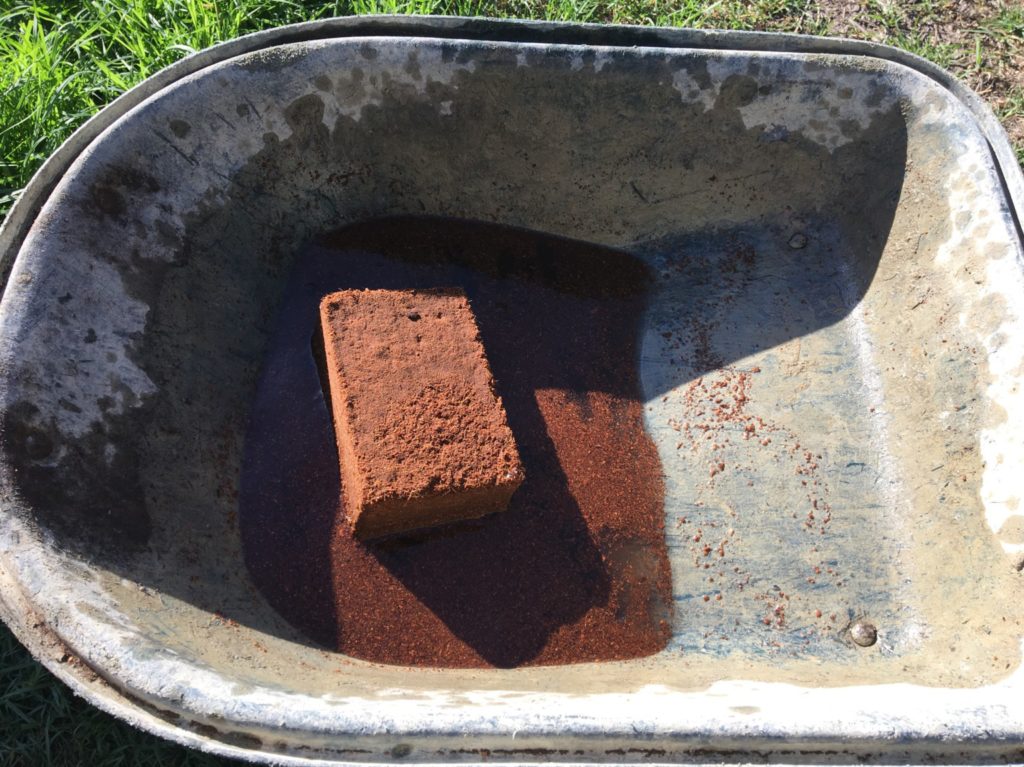
After a few minutes you end up with this really swell result:
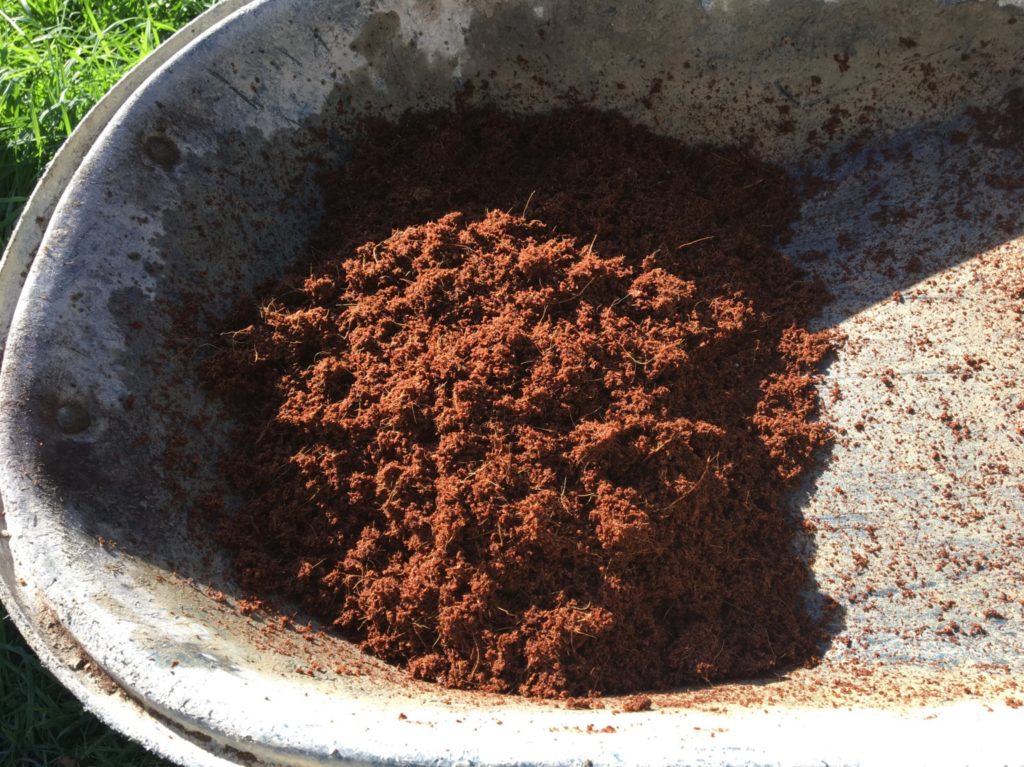
I found planter tubes from a local recycled goods shop, rinsed them clean and filled them with the coir mix. The planter tubes sit in a re-used bulk meat tray. A pen lid was used to make holes at the correct depth:
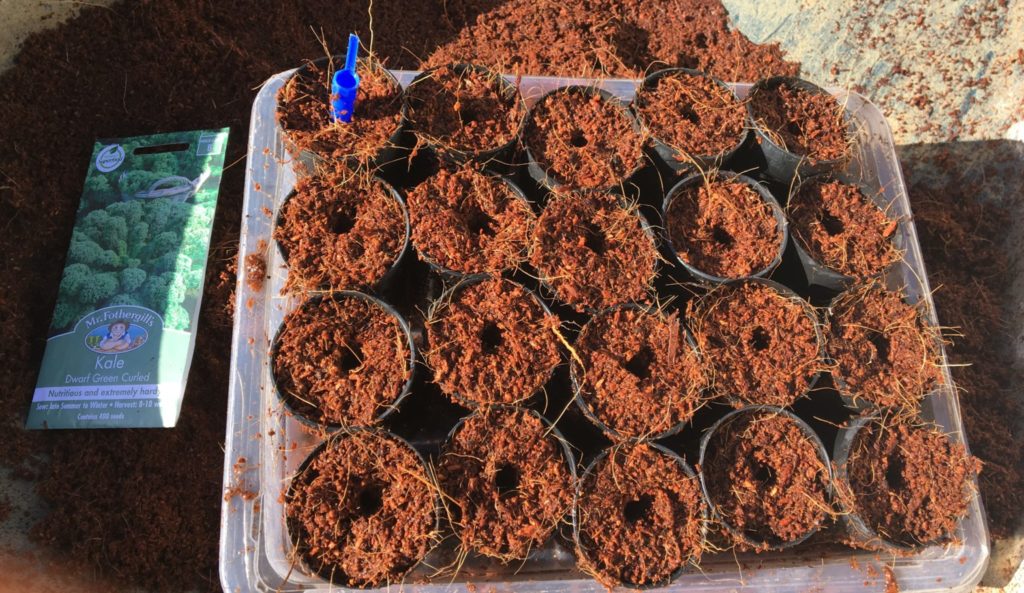
Another meat tray was used as the lid to form a mini greenhouse:
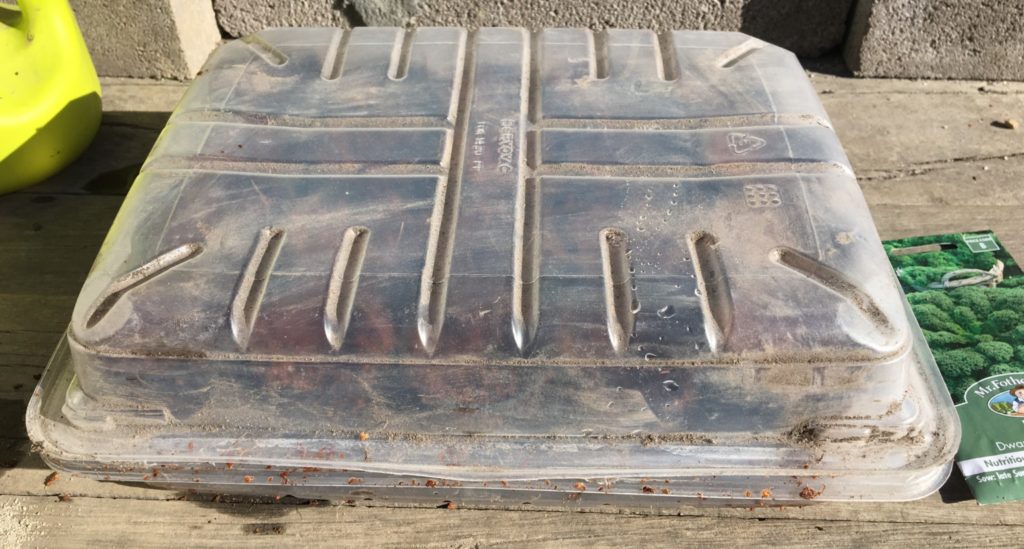
This sat in my office near the window for a few days and he results were amazing. Every tube had sprouted seeds and some more than one:
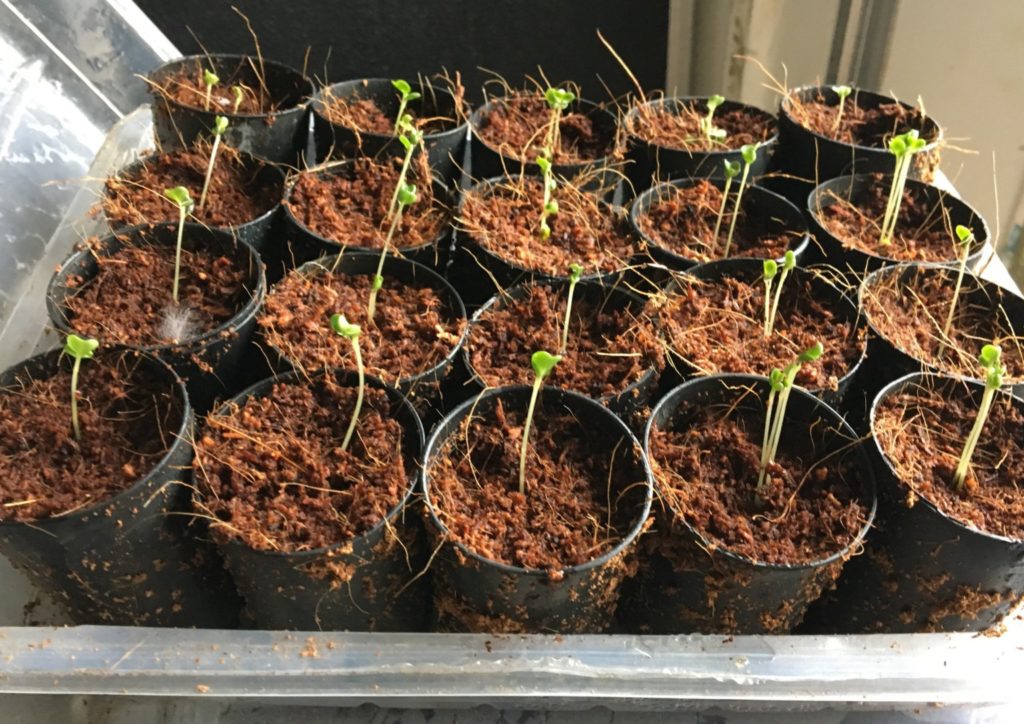
As an experiment I had previously planted Kale seeds into eucalyptus mulch, which still had a smell of eucalyptus oil. This did not absorb the water well so I added water to the bottom tray, then covered each seed with fine sand. As you can see, the germination rate was not very high. The Kale seeds only sprouted in half of the tubes:
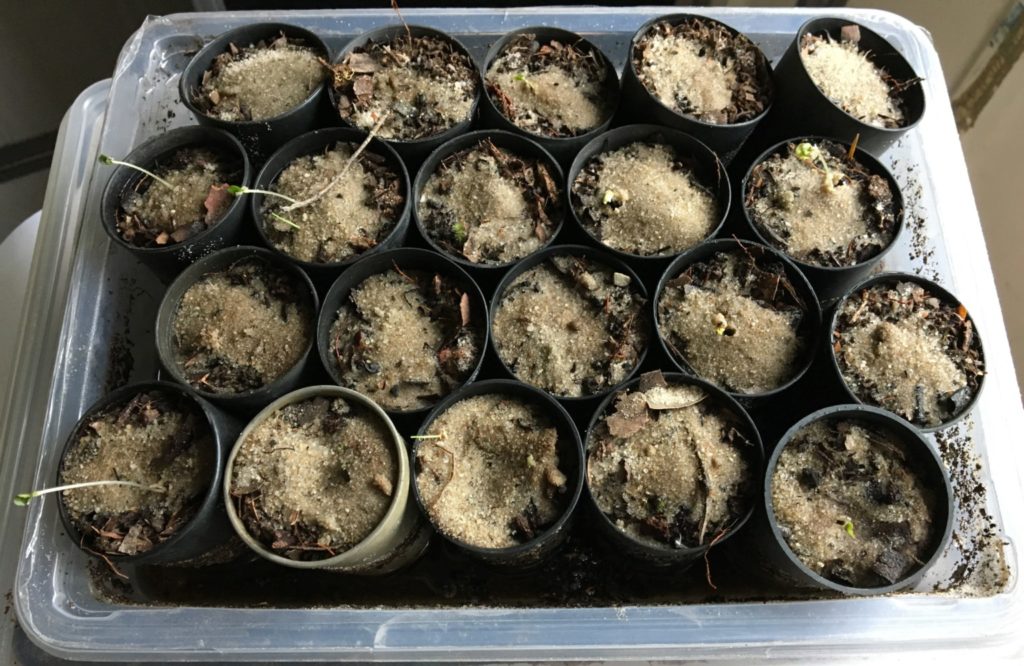
The good news/soil
This reminds me of the parable of the sower in Matthew 13. Although the seed was viable in every scenario, Jesus explained that it must land on rich soil to produce a harvest. When our hearts receive and fully embrace the Good News of salvation, it always bears good fruit!